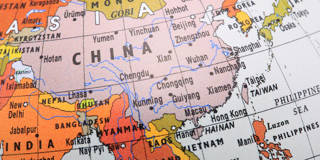Joseph S. Nye, Jr.
Says More…
This week in Say More, PS talks with Joseph S. Nye, Jr., a professor at Harvard University, a former US assistant secretary of defense, and the author, most recently, of Do Morals Matter? Presidents and Foreign Policy from FDR to Trump (Oxford University Press, 2020).
Project Syndicate: A pivotal moment in the emergence of “soft power” – a term you coined – as a widely accepted foreign-policy concept occurred in 2007, when then-Chinese President Hu Jintao told the 17th National Congress of the Communist Party of China (CPC) that the country must develop it. Chinese officials then contacted you privately to seek advice on how to go about it. To what extent did China heed your advice, particularly with regard to the developing world, and is that changing under Xi Jinping?
Joseph S. Nye, Jr.: Soft power is the ability to get what you want through attraction, rather than coercion or payment. China derives soft power from its traditional culture, its impressive economic performance, and its aid programs. But it has at least two liabilities that are undermining its ability to generate soft power.
First, China lacks an open civil society – a key source of attractiveness – owing to the CPC’s insistence on maintaining tight control over people’s lives and opportunities for independent voluntary association. Second, China maintains – and stokes – tensions and conflicts with its neighbors, often over territorial issues. A Confucius Institute in New Delhi can do nothing to boost China’s attractiveness if Chinese troops are killing Indian soldiers on their disputed Himalayan border.
